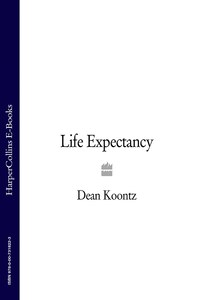1
Aman begins dying at the moment of his birth. Most people live in denial of Death’s patient courtship until, late in life and deep in sickness, they become aware of him sitting bedside.
Eventually, Mitchell Rafferty would be able to cite the minute that he began to recognize the inevitability of his death: Monday, May 14, 11:43 in the morning—three weeks short of his twenty-eighth birthday.
Until then, he had rarely thought of dying. A born optimist, charmed by nature’s beauty and amused by humanity, he had no cause or inclination to wonder when and how his mortality would be proven.
When the call came, he was on his knees.
Thirty flats of red and purple impatiens remained to be planted. The flowers produced no fragrance, but the fertile smell of the soil pleased him.
His clients, these particular homeowners, liked saturated colors: red, purple, deep yellow, hot pink. They would not accept white blooms or pastels.
Mitch understood them. Raised poor, they had built a successful business by working hard and taking risks. To them, life was intense, and saturated colors reflected the truth of nature’s vehemence.
This apparently ordinary but in fact momentous morning, the California sun was a buttery ball. The sky had a basted sheen.
Pleasantly warm, not searing, the day nevertheless left a greasy sweat on Ignatius Barnes. His brow glistened. His chin dripped.
At work in the same bed of flowers, ten feet from Mitch, Iggy looked boiled. From May until July, his skin responded to the sun not with melanin but with a fierce blush. For one-sixth of the year, before he finally tanned, he appeared to be perpetually embarrassed.
Iggy did not possess an understanding of symmetry and harmony in landscape design, and he couldn’t be trusted to trim roses properly. He was a hard worker, however, and good if not intellectually bracing company.
“You hear what happened to Ralph Gandhi?” Iggy asked.
“Who’s Ralph Gandhi?”
“Mickey’s brother.”
“Mickey Gandhi? I don’t know him, either.”
“Sure you do,” Iggy said. “Mickey, he hangs out sometimes at Rolling Thunder.”
Rolling Thunder was a surfers’ bar.
“I haven’t been there in years,” Mitch said.
“Years? Are you serious?”
“Entirely.”
“I thought you still dropped in sometimes.”
“So I’ve really been missed, huh?”
“I’ll admit, nobody’s named a bar stool after you. What—did you find someplace better than Rolling Thunder?”
“Remember coming to my wedding three years ago?” Mitch asked.
“Sure. You had great seafood tacos, but the band was woofy.”
“They weren’t woofy.”
“Man, they had tambourines.”
“We were on a budget. At least they didn’t have an accordion.”
“Because playing an accordion exceeded their skill level.”
Mitch troweled a cavity in the loose soil. “They didn’t have finger bells, either.”
Wiping his brow with one forearm, Iggy complained: “I must have Eskimo genes. I break a sweat at fifty degrees.”
Mitch said, “I don’t do bars anymore. I do marriage.”
“Yeah, but can’t you do marriage and Rolling Thunder?”
“I’d just rather be home than anywhere else.”
“Oh, boss, that’s sad,” said Iggy.
“It’s not sad. It’s the best.”
“If you put a lion in a zoo three years, six years, he never forgets what freedom was like.”
Planting purple impatiens, Mitch said, “How would you know? You ever asked a lion?”
“I don’t have to ask one. I am a lion.”
“You’re a hopeless boardhead.”














